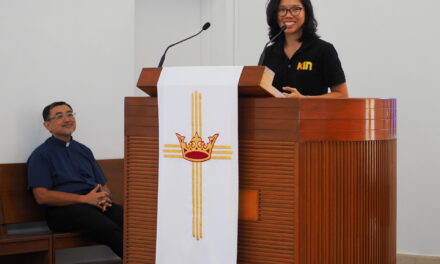
Psalm 130: 3-4
3 If iniquities you watch over, Yah,
My Lord, who could stand?
4 But with you is the forgiveness
So that you are feared.
WHO COULD STAND?
Often, I unwittingly take Lent as a way to restart my failed New Year’s resolutions:
- Cut down on snacking and sugary drinks? Check.
- Cut down on aimless scrolling through social media to prevent the noise of the world from clouding my thoughts? Check.
- Add on one or two “spiritual” activities, like prayer and almsgiving? Check and check.
But this poor attitude belies a competitive and legalistic spirit beneath, one that looks at others to see whether they are as spiritual as I am and finding glee if they do not match my standards. However, the psalmist notes a universal truth in v. 3, “If iniquities you watch over, YHWH, my Lord, who could stand?” Augustine notes in his commentary on the Psalms that the emphasis is not on the self, that is, on whether I myself could stand but on who, because “[the psalmist] saw that the whole of human life on every side was ever bayed at by its sins, that all consciences were accused by their thoughts, that a clean heart trusting in its own righteousness could not be found.” Surely if God were to hold my pitiable attempts at righteousness against his, I would not stand a chance at mere existence!
Thankfully, the psalmist goes on in v.4 that with God there is forgiveness! In the Hebrew text, “forgiveness” is preceded by a definite article “the,” personifying God’s immutable attribute, one that does not wax nor wane. It is because of his forgiveness that I can stand secure, no longer bowed down by iniquity. When I appreciate the depth of his forgiveness, the next time I look at someone else to see how spiritual they are, I am called to walk with them instead of running ahead of them.
Kjelti Koh
(M.Div., Yr 3)









